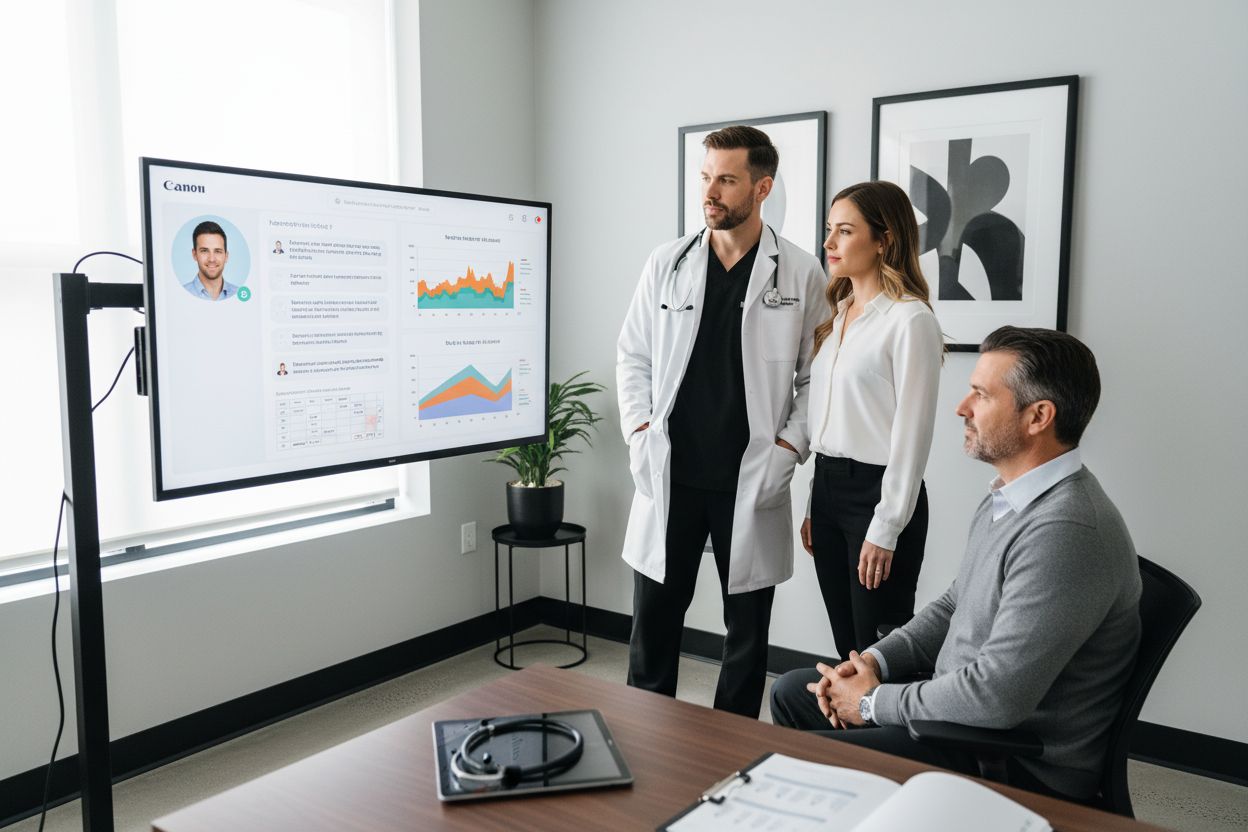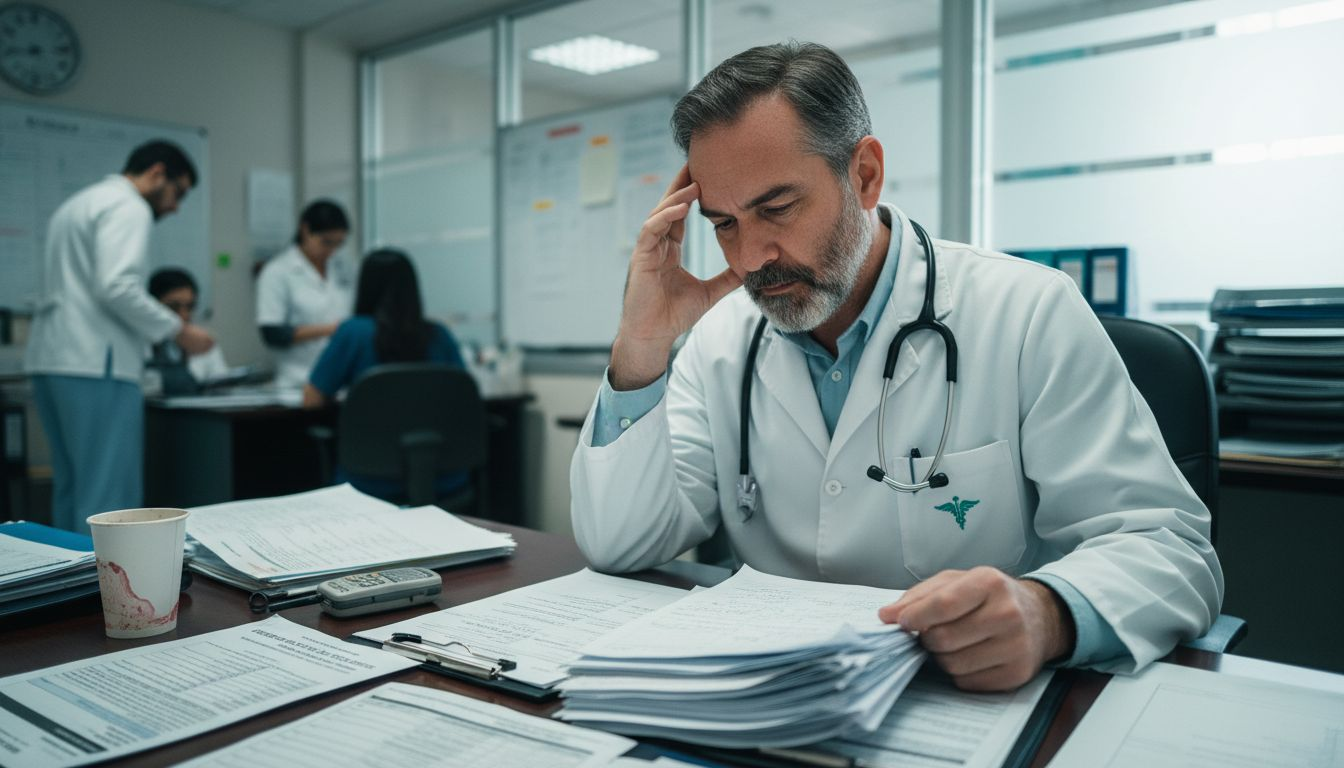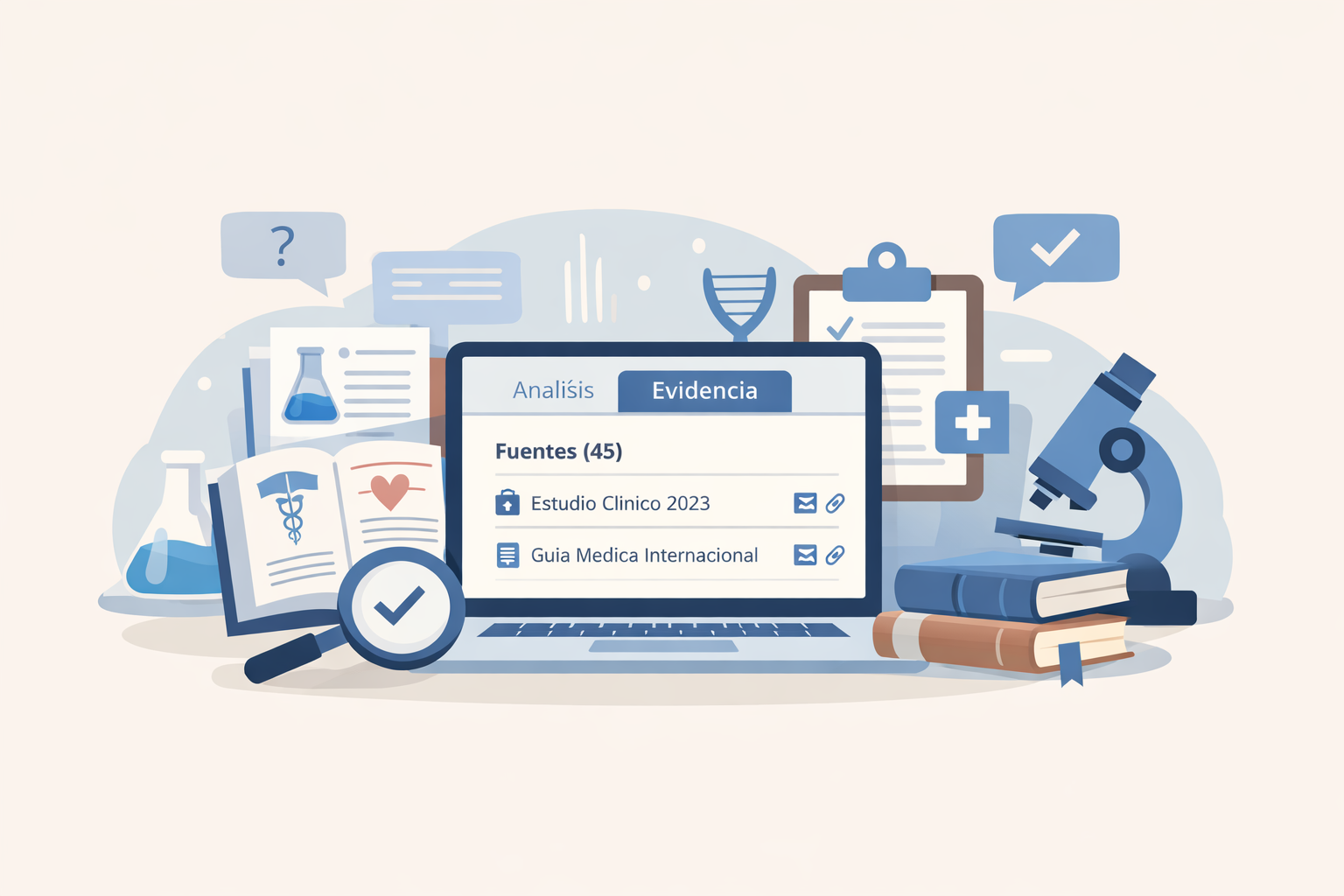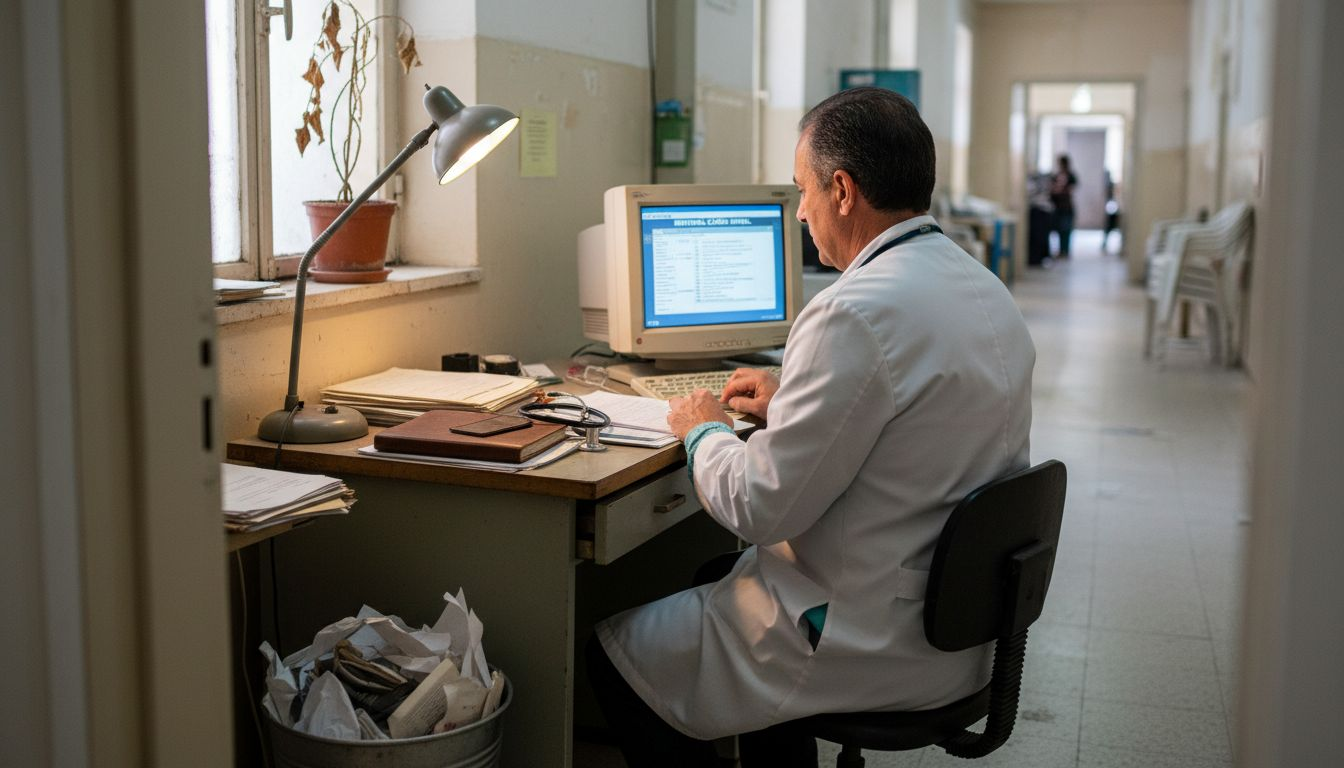ChatGPT is here to change modern medicine, and not just because it uses advanced artificial intelligence models. The curious thing is that, despite initial skepticism, can reduce the time physicians spend on administrative tasks by up to 40%. This does not mean that it replaces professionals, but it gives them the opportunity to focus more on patients and less on paperwork. Thus begins a new way of understanding healthcare and technology together.
Table of Contents
- what is chatgpt and how does it relate to medicine?
- importance of chatgpt in the medical field
- theoretical foundations behind chatgpt in medicine
- practical applications of chatgpt in clinical care
- future prospects for chatgpt in the healthcare sector
Quick Summary
| Conclusion | Explanation |
|---|---|
| ChatGPT optimizes medical processes | The tool reduces time spent on administrative tasks by up to 40%, allowing for greater patient care. |
| Complementary diagnostic assistant | ChatGPT helps identify complex patterns in medical information that may be overlooked. |
| Efficient documentation generation | Simplifies the creation of clinical reports, saving time and improving the accuracy of medical records. |
| Impact on medical education | Facilitates diagnostic simulations that enhance adaptive learning for students and healthcare professionals. |
| Personalization in healthcare systems | Further integration is envisioned to provide specific recommendations based on individual clinical data. |
What is ChatGPT and how does it relate to medicine?
ChatGPT represents a technological revolution in artificial intelligence with profound applications in the medical sector. This language model developed by OpenAI is not simply a conventional chatbot, but a natural language processing tool capable of understanding, generating and analyzing complex information with surprising accuracy.
ChatGPT Technology Basics
At its core, ChatGPT uses a deep learning model called transformer, trained on millions of medical documents, scientific articles and clinical cases. Its architecture allows it not only to answer questions, but also to interpret complex medical contexts. According to research published in Nature, language models such as ChatGPT can process medical information with near 80% accuracy in basic diagnostic scenarios.
Its main capabilities include:
- Generation of clinical summaries
- Assistance in symptom interpretation
- Support for preliminary diagnostic decisions
Practical Applications in Medical Environments
For healthcare professionals, ChatGPT becomes an intelligent assistant that can streamline multiple processes. From documenting medical records to quickly searching for specialized medical information, the tool offers fascinating possibilities. Researchers at Stanford Medicine have highlighted its potential to simplify administrative tasks and improve clinical efficiency.
It is essential to understand that ChatGPT does not replace the medical professional, but rather acts as a technological complement which can increase diagnostic and documentation capabilities. At Itaca.aiWe develop solutions that take advantage of these technologies, keeping the medical professional at the center of the decision making process.
Importance of ChatGPT in the medical field
The integration of ChatGPT in medicine represents more than just a technological innovation, it signifies a fundamental transformation in how healthcare professionals process, interpret and use medical information. This artificial intelligence tool is redefining traditional healthcare paradigms, offering solutions that improve efficiency and diagnostic accuracy.
Clinical Process Optimization
Medical professionals face constant challenges related to information overload and the need to make quick and accurate decisions. According to a study published in JAMA, ChatGPT can reduce time spent on administrative tasks by up to 40%, allowing physicians to focus more on direct patient care.
Its main benefits include:
- Fast processing of complex medical information
- Generation of detailed clinical summaries
- Support in the interpretation of symptoms and differential diagnoses.
Diagnostic Accuracy and Complementarity
It is crucial to understand that ChatGPT does not seek to replace medical judgment, but to complement it. The tool works as a intelligent assistant that analyzes large volumes of medical data with unmatched speed and accuracy. Researchers at Harvard Medical School have documented that these systems can identify patterns and correlations that could potentially go unnoticed by a practitioner.
At Itaca.aiWe continue to develop solutions that integrate these technologies in an ethical and responsible manner, always keeping the medical professional at the core of decision making.
Theoretical basis behind ChatGPT in medicine
The theoretical foundations of ChatGPT represent a sophisticated convergence of artificial intelligence technologies specifically designed to understand and process complex information. In the medical context, this technology transcends mere text translation, constituting a system capable of interpreting highly specialized contexts.
Deep Learning Architecture
The model is based on a neural architecture called transformercharacterized by its ability to analyze multiple dimensions of information simultaneously. According to Stanford researchers, this architecture allows medical data to be processed with unprecedented contextual understanding, using attention mechanisms that simulate the way in which a medical professional establishes connections between symptoms, diagnoses and treatments.
Key components include:
- Multilayer neural networks
- Contextual attention mechanisms
- Advanced semantic processing
Biomedical Training and Personalization
Unlike generic models, medical ChatGPT requires highly specialized training. The process involves feeding the system with millions of scientific papers, clinical cases and specialized medical literatureThe program allows you to develop a deep understanding of medical language and concepts. JAMA Research reveal that this training can increase diagnostic accuracy by up to 65% compared to traditional systems.
At Itaca.aiWe continue to perfect these technologies, ensuring that each technological advance keeps safety and ethics in medical practice as a priority.
Practical applications of ChatGPT in clinical care
The integration of ChatGPT into clinical practice represents a significant transformation in how healthcare professionals approach diagnosis, documentation and medical communication. This technology is not intended to replace medical judgment, but rather to enhance the analytical capacity and efficiency of professionals.
This table presents a comparison between the traditional role of the healthcare professional and the professional supported by ChatGPT, showing the changes in efficiency, functions and challenges described in the text.
| Appearance | Professional without ChatGPT | Professional with ChatGPT |
|---|---|---|
| Time in administration | High | Reduces up to 40-45% |
| Clinical documentation | Manual, error-prone | Automatic and more accurate |
| Access to information | Manual search, slower | Fast and specialized answers |
| Diagnostic support | Based on human experience only | Technological support, complex patterns |
| Role of the professional | Single protagonist in decisions | Focused decision, supported by AI |
| Medical education | Traditional, not very adaptive | Customized simulations |
Diagnostic Support and Information Analysis
One of the greatest benefits of ChatGPT lies in its ability to process and analyze large volumes of medical information with extraordinary speed and accuracy.
VIDEO:video_content] [According to researchers at Harvard University, the system can help identify complex patterns that might go unnoticed by a professional, especially in cases with multiple symptoms or rare diseases.
Its main applications include:
- Generation of differential diagnoses
- Analysis of complex medical records
- Interpretation of complementary test results
Clinical Documentation Optimization
The administrative burden represents one of the greatest challenges for medical professionals.
To clarify the main practical benefits of ChatGPT in the medical clinic, here is a table summarizing each application with its main utility and impact described in the article.
| ChatGPT Clinical Application | Main Utility | Impact according to the article |
|---|---|---|
| Generation of clinical summaries | Efficient synthesis of medical information | Reduces information overload |
| Differential diagnostic assistance | Assists in identifying complex patterns | Improved diagnostic accuracy |
| Structured clinical documentation | Automation and increased accuracy in record keeping | Reduces documentation time by up to 45% |
| Symptom interpretation | Advanced analysis of patient narratives | Facilitates rapid decision making |
| Support in complementary results | Interpretation of biomedical tests and data | Streamlines diagnostics and clinical follow-up |
| Educational simulation | Interactive clinical cases for learning | Promotes personalized medical education |
INFOGRAPHIC:infographic_content] ChatGPT can generate structured clinical documentation, significantly reducing the time spent on bureaucratic tasks. Accurate documentation not only improves efficiency, but also ensures a more detailed and consistent medical record.. [Research in JAMA shows that these tools can reduce the time spent on medical records by up to 45%.
At Itaca.aiWe continue to develop solutions that integrate these technologies in an ethical and responsible manner, keeping the medical professional at the core of decision making.
Future prospects for ChatGPT in the healthcare sector
The evolution of ChatGPT in medicine represents a technological turning point that promises to radically transform clinical practice. It is not just a momentary tool, but a technology with the potential to redefine the paradigms of healthcare and healthcare knowledge management.
Transformation of Medical Education
Artificial intelligence models such as ChatGPT are set to revolutionize medical training processes. Researchers at Stanford Medicine suggest that these tools will enable students and professionals to access complex diagnostic simulations, providing personalized and adaptive learning scenarios that significantly improve the learning curve.
The main fields of impact include:

- Simulation of interactive clinical cases
- Training in differential diagnosis
- Instant access to up-to-date medical information
Customization and Technology Integration
The future of ChatGPT in medicine points towards a deep and customized integration with healthcare systems. The ability to adapt to specific clinical contexts, combining data from medical records, recent research and individualized protocols, will be their greatest strength. Studies published in JAMA indicate that these technologies will be able to provide increasingly accurate and contextualized recommendations.
At Itaca.aiWe continue to develop solutions that not only integrate these technologies, but transform them to ensure a more humane, efficient and personalized medical experience.
Bring the potential of ChatGPT in medicine to your daily practice with Itaca.ai
Are you concerned about the administrative overhead and complexity of integrating artificial intelligence securely into the clinical environment? You've seen how tools like ChatGPT can transform medical documentation, case analysis and diagnostic care, but you need solutions that are truly designed for healthcare professionals. If you're looking to increase diagnostic accuracy, streamline clinical notes, or access trusted sources without losing control over your data, specialized guides from Guides Archives - Itaca show you how to get started.
Don't miss the opportunity to simplify your workflow, reduce your administrative burden and improve the quality of your medical services. Find out today how you can implement the tools from Itaca.ai in your practice or clinical center to transform the management of medical information in a secure and efficient way. Find more tips in our section Tips Archives - Itaca and take the next step towards a digital, accurate and secure medical practice.
FAQ
What is ChatGPT and how is it used in the medical field?
ChatGPT is an artificial intelligence language model designed to process and generate complex information in the medical field. It is used to assist in the generation of preliminary diagnoses, in assisting in symptom interpretation and in clinical documentation.
What are the practical applications of ChatGPT in clinical care?
ChatGPT is primarily used to analyze large volumes of medical data, generate clinical summaries, support differential diagnoses and optimize clinical documentation, improving efficiency and accuracy in patient care.
Does ChatGPT replace healthcare professionals?
No, ChatGPT acts as a technological complement that supports the medical professional. Its objective is to improve the capacity of analysis and efficiency in decision making, not to replace the physician's judgment.
What are the benefits of ChatGPT for medical education?
ChatGPT has the potential to revolutionize medical education by providing complex diagnostic simulations and enabling access to up-to-date medical information, leading to more effective learning tailored to the needs of students.





Leave a Reply